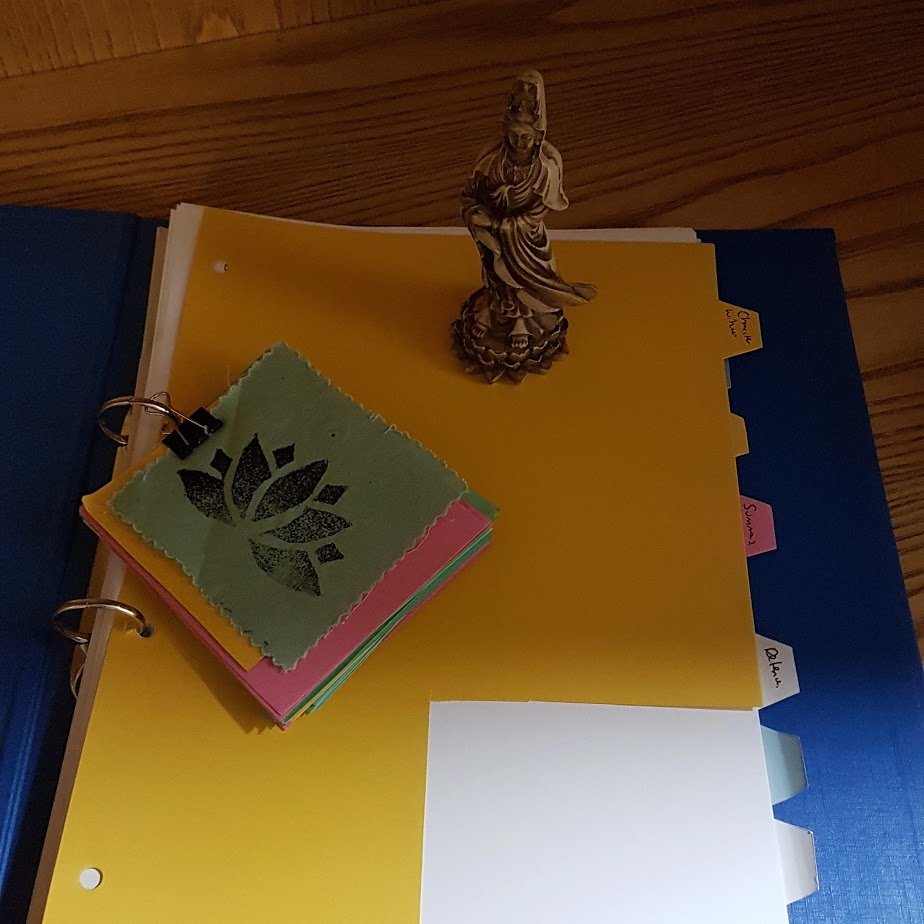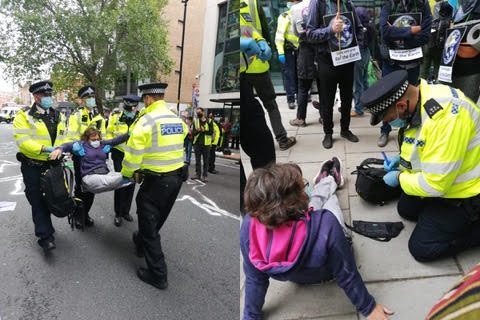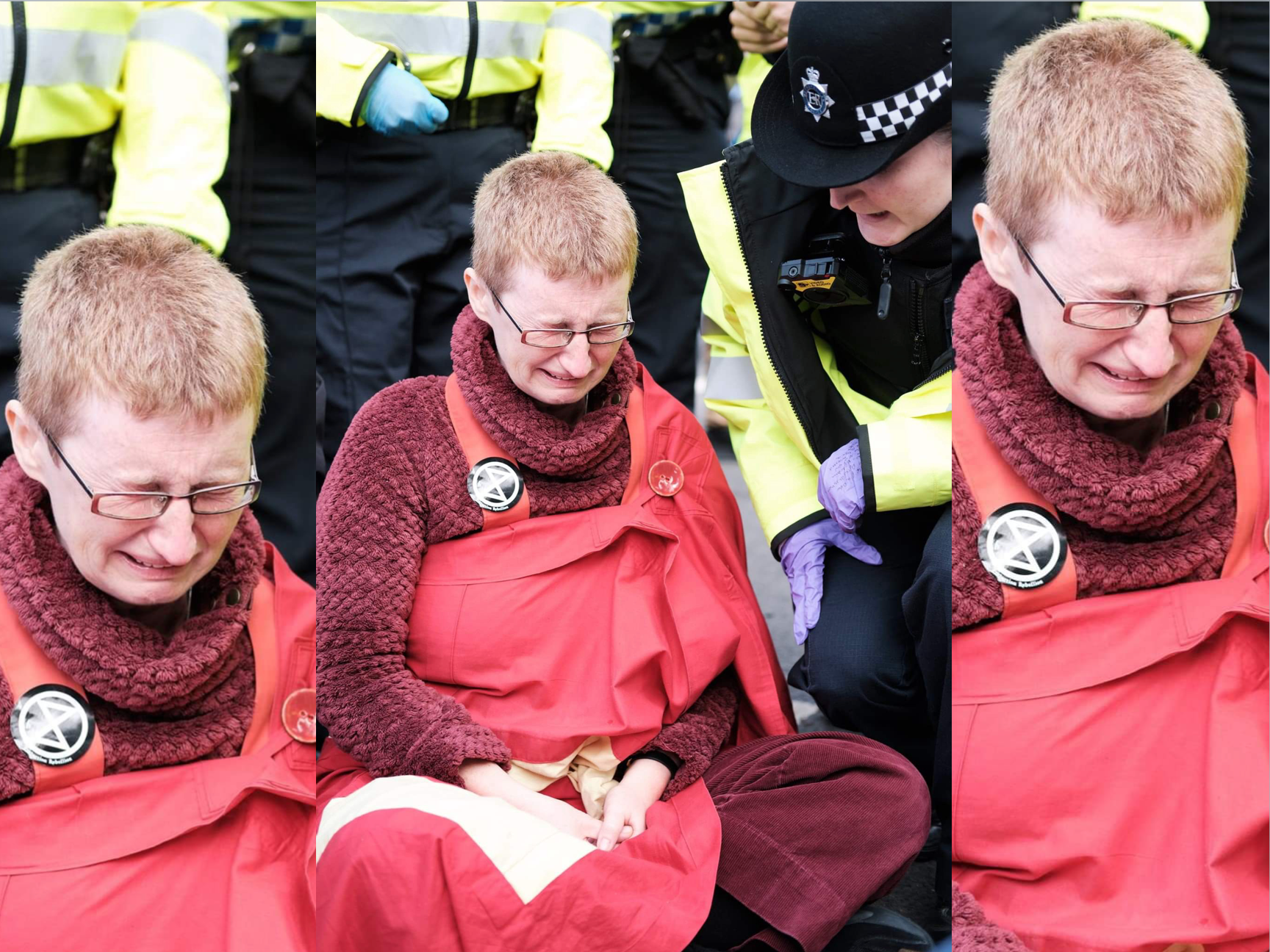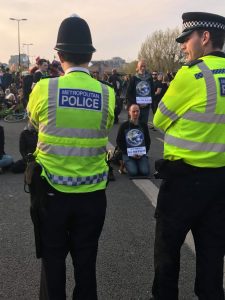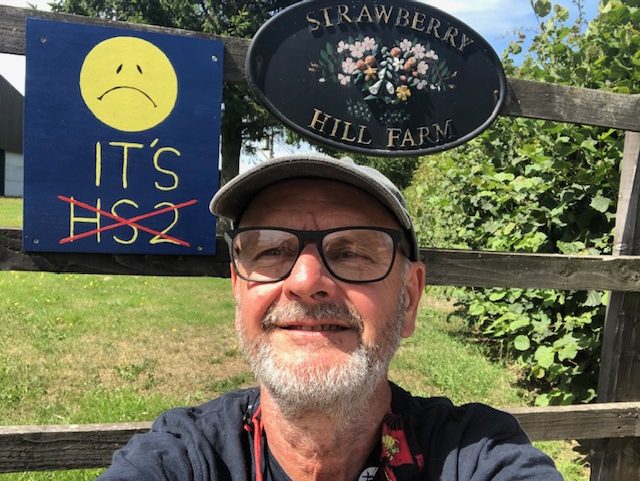Joe on Trial
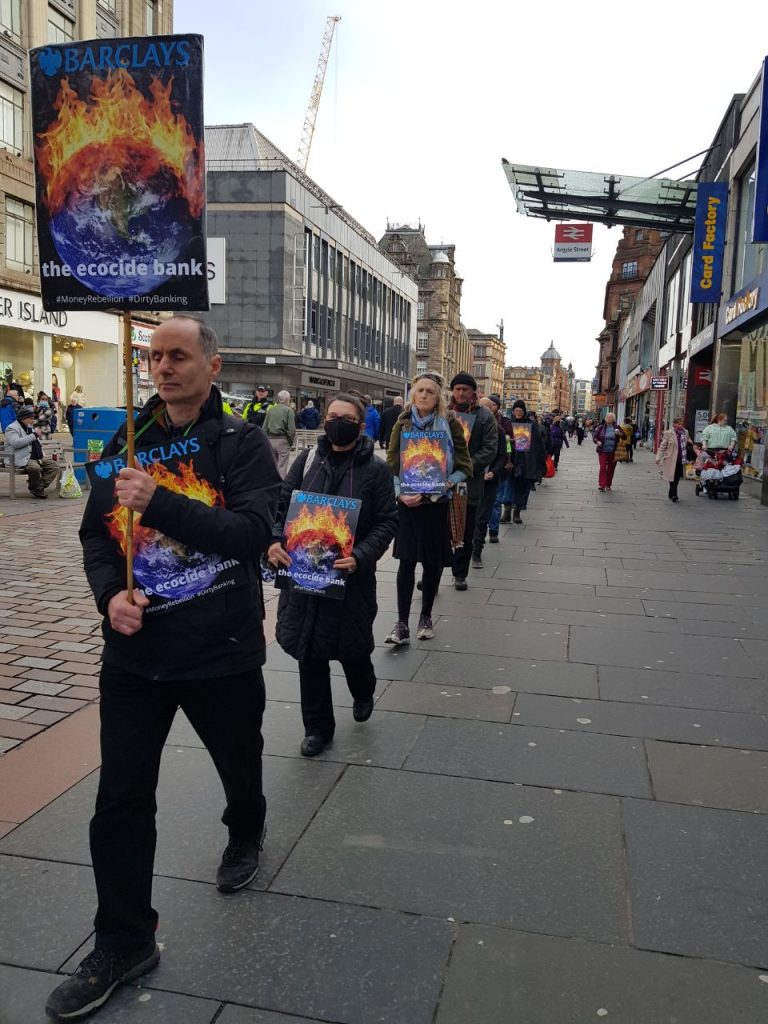
Read Joe’s defence statement to the charge of failing to comply with a section 14. In August this year he was sitting in the road near Leicester Square together with Satya and other rebels and failed to move when asked by the police. He is appearing at City Magistrates Court on Thursday 9th December, and will plead not guilty. This is his fourth arrest.
Update: Joe’s charges were dropped due to lack of evidence just before the trial date.
I am a psychotherapist in private practice, now retired after 26 years in the NHS. I am also a mindfulness teacher in the Buddhist tradition. Over the years of my practice I have developed a familiarity with my inner life which ensures that I do not act impulsively. My decision to occupy the road on August 23rd this year was based on a long period of reflection and discussion with friends.
I will be using the defence of necessity: that my occupation of the road that day was a necessary act to prevent a greater crime. In this case an incalculably great crime.
I would like to give the background to my defence as follows.
For me the central question is this.
At a time when the science has established with compelling clarity that my children’s future and the future of all beings on our one precious planet is in imminent and mortal danger, what should I do? What is my responsibility as a conscious highly privileged inhabitant of this planet?
First I want to briefly refer to the well-known facts of the climate and ecological emergency. Antonio Guterres the secretary general of the IPCC said in August this year:
‘The alarm bells are deafening, the evidence is irrefutable. Green-house gas emissions, fossil fuel burning and deforestation are choking our planet and putting billions of people at immediate risk. Global heating is affecting every region on Earth and many of the changes are becoming irreversible’
The following is obvious to me now:
First. The media and the Governments are not telling us the truth about the seriousness of the danger we are in. They are not conveying the sense of utmost urgency commensurate to the threat we face. Compare this with the daily messages about the facts and dangers when Covid 19 was at its height; there were daily messages about the extent of the threat, the need for immediate action, and huge sums of money were made available to tackle this. It is this level of honesty, action and leadership that is needed now to address the climate emergency.
Second. Government action on climate around the world, with only a few exceptions, is entirely inadequate to prevent climate breakdown. This was evident from the outcome of COP.
What our Government is doing however, is introducing a law to suppress unrest, to prevent ‘inconvenience’ to the public and to corporations. Through the Police Crime Sentencing and Courts Bill protesters like myself will be subject to imprisonment for the kind of action I took in August. This is a gross misuse of our legal system. If the new law turns out to be an effective deterrent to protest then we all lose. If this legislation suppresses protest as is intended, then ladies and gentlemen, we will all go over the cliff edge into our new world of famine, heat death, floods and ecological collapse, in an orderly and quiet manner. There will be no inconvenient disruption to proper process and business as usual as we tip into the abyss of climate and ecological collapse. Frankly, to focus on shooting the messenger like this in the face of possible extinction, is not what I would expect from an intelligent species. I’m sure we can do better.
Third. Corporations in the fossil fuel and finance sector are actively working to slow action on climate. They are lobbying against decisive action, and using greenwash with their claims to be on board with net zero whilst at the same time continuing to invest in new oil coal and gas. The five largest oil and gas companies have spent over $1bn on misleading climate-related branding and on lobbying since the 2015 Paris agreement. And the banking sector has invested $3.8 trillion in the fossil fuel industry since 2015. Continuing to slow action on the climate crisis while actively investing in more fossil fuels in the full knowledge of the lethal consequences for our planet is surely a criminal act. And from a psychological perspective, if an individual were doing this they would be diagnosed as psychopathic. From a legal perspective I believe it is equivalent to the crime of Genocide as upheld by the International Criminal Court: the difference here is that it is not just human life, but all life on the planet that is effected so it is more properly called Ecocide.
My conclusion from these three considerations – that we are not being told the truth, that our democratically elected representatives are failing to act to keep us safe, and that there are hugely wealthy and powerful organisations which are actively working to push our planet beyond safe limits, is that if I remain quiet, then I am complicit in an act, or acts, of extreme negligence amounting to the most heinous crime imaginable. To degrade and despoil the incalculable richness of this planet we have been gifted, to steal the future from our children and all species in the name of profit and business as usual, to say that it is too difficult or inconvenient to act effectively: words fail me. Perhaps only the silence of grief and shame can hold the weight of truth at this time.
There are those of course who will say that there are existing democratic processes through which I and others can express our concern. Indeed there are and I am very familiar with them: writing to my MP, joining a march, engaging in local democratic processes such as planning applications, supporting NGOs. After 30 years of being an active campaigner in all these ways, the results are plain to see. There have been some wins from all this, but the cliff edge inches closer with every passing hour.
And so what should I do? As a father of 2 children in their 20s, as a psychotherapist, as a Buddhist, but perhaps most of all as a conscious, privileged inhabitant of this deeply beautiful planet. What should I do?
I have spent my working life attempting to relieve suffering. The process of my professional and Buddhist practice has sensitised me to the many expressions of suffering of the human heart. As a consequence of my inner and outer work I find that, with no conscious deliberation, my compassion is called toward the suffering and loss that is, and will be experienced by countless humans and non-humans across this planet as we tip toward instability. Thich Nhat Hanh the renowned Zen master, global spiritual leader, poet and peace activist says that compassion is a verb, an action. Compassion calls us into action and it is my belief and experience that if we ignore this call, if we turn away, something dies in us. Compassion is I believe the deepest expression of our human heritage, it is what is best in us and the deepest expression of our love.
And so to the more explicit reference to my defence of necessity, I recognise that I broke the law in respect of Section 14 by sitting in the road in London, but my action was entirely proportionate to the need to prevent an incalculably greater crime; a crime which even as I speak is continuing. This is a crime, but it is also a betrayal. A betrayal by those in positions of power who have a responsibility to use their power in a manner which nurtures and does not harm.
Compassion calls me to stand against this betrayal, this injustice, this crime. I am not a saint and I am far from perfect and yes I am afraid. But I am here today in alignment with my heart, with my Buddhist faith and with my conscience.
Joe is a psychotherapist, mindfulness teacher and one of the founding members of XR Buddhists.

